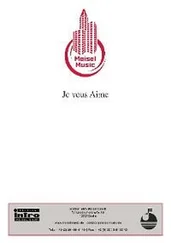“Everyone’s going to see this,” I choked to my mother.
“I thought you would like it.” She looked pained. “I thought you would be proud.” She slowly realized her mistake. “Maybe it won’t be that bad,” she said hopefully. “How many high-schoolers read the science section of the Boston Globe ?”
But she was wrong. The reaction at school was surprisingly swift. The biology teacher clipped the whole article out and tacked it to her classroom bulletin board. The history teacher did the same. The principal made an announcement over the loudspeaker at lunch: he mentioned me and my father by name. By second period I found out that a gaggle of freshman girls raided the library and cut the picture of our family out of the paper and taped it to the inside of their locker doors. The girls who did this were not the most popular ones, of course. The most popular could not have cared less. The girls who did this were the quieter ones, the studious ones, the vegetarians, the ones who stickered their political beliefs across their binders. The ones who actually read classroom bulletin boards.
I am not proud to say that I reveled in the attention. I thought it was a bit of good luck. If I couldn’t have Adia, maybe I could at least have fans. I thought those girls were outliers, the first to pick up on my value. The more popular ones would come later. Maybe, I thought, maybe I had been wrong to suppress Charlie for so long: maybe the very thing I hated was my ticket to acceptance. At the very least, at the very most, it gave me a chance to triumph over Adia. In the cafeteria, at lunch, I signed for anyone who asked.
What was most surprising was that no one in Courtland County seemed disturbed by the mention of Frances Gorey’s book. It was true that her research was only referred to in passing as “unfounded allegations.” Courtland County simply believed that this part of the story didn’t apply to them. They didn’t care about history, only biology, only the deep pleasure of gazing into another living animal’s face, only the here and now. Charlie became for them a teen idol, magnified in newsprint.
This did not devastate me. I was, in fact, relieved. I didn’t want to explain the Toneybee to anyone and I didn’t want to have to feel guilty for living there anymore. But I know it devastated Adia. We still weren’t speaking, of course. Photocopies from the Man or Beast? she owned began littering the high school: stacked on the tables in the library, left in the cafeteria. She did all this anonymously, but of course it was her work. But they were not censored, nobody swept them away. They were left out in plain sight for weeks on end, patently unread, their edges curling up in disuse.
While Adia tried to tell the world the truth, the Toneybee’s version began to proliferate. The Globe article was just the beginning: the Washington Post and the New York Times and a column in Psychology Today picked up the story. My mother started a press album where she lovingly pasted a fluttering of clippings from papers across the country. None of these articles mentioned the book, or if they did, it was only in passing. The only article that elaborated on it was the Boston Herald . She refused to clip this one: she wouldn’t even let the paper in our house. “A tabloid,” she said.
The girls at school collected as many snapshots of Charlie as they could. At first, they asked me to annotate them, provide my recollections of when a picture was taken or what happened after a lens flicked. I would oblige, trying to work in a funny story about myself or what I saw on TV the night before or what book I was reading. They listened politely and steered me back to the clippings. A few of them began angling for trips to the Toneybee, but I had enough pride to refuse this. I knew they only wanted to come to see Charlie. When it became clear I wouldn’t be introducing him to anyone, the girls backed off. I still sat beside them at lunch, stubbornly willing the conversation in another direction, any direction away from the Toneybee, but they resisted just as stridently.
So I told stories about Callie and Charlie as if they had happened to me. I did impressions. I pulled faces. I made jokes. I was a hit, for a time.
But I couldn’t stay ahead of the fad. It twisted and turned and then one day, on my way to the cafeteria to talk, once again, about Charlie, I passed some girl’s locker and I saw that she had taken a pair of scissors to her newspaper clipping and cut one straight brutal slit across the photo, straight to Charlie’s face. She’d separated his face from his surroundings by cutting it into the shape of a heart. She’d discarded the rest of us. She taped only the valentine, with Charlie’s worried, anxious face at its center, back into her locker.
The edit became popular. By the time school let out, my family was missing from all those locker doors and it was only Charlie in the center of a collection of hearts of varying size.
I slid miserably toward my father’s classroom. When he saw me in his doorway, he looked surprised.
“To what do I owe this honor?”
“Nothing,” I said. “Is it okay if I just sit here for a little bit?”
“Sure.” His expression didn’t change. He just nodded. “Stay for as long as you like.”
He turned back to his desk, began to fill his briefcase with papers. We didn’t talk until the bell rang to tell us to go home.
Last period of the day. Charles had decided that morning that he would talk about tessellations. Last period, they should have been covering sines and cosines. They should have been starting to graph, but he just didn’t have it in him. Tessellations were his favorite.
When Charles first met Laurel, he’d told her that. He’d told her how much he loved the idea. “Everything has its place,” he’d said. “And when it’s in its place, it makes beauty.” Laurel said laughingly back, “That’s too easy.” She didn’t like easy. She never had. She liked complication. She said, “If it’s not hard, it’s not worth it,” and he had believed her. It had excited him, it still excited him, that willingness to battle. But he knew the danger of those words now. “If it’s not hard, it’s not worth it.” It wasn’t true.
A whole class on tessellations, the subject didn’t deserve a full lesson, but that morning, crumpled on his bony couch, drinking the spit of grounds and lukewarm water that drooled from his secondhand coffeemaker, he’d bookmarked the graphs in his notebook, at the lecture notes he’d penciled for himself in his straight boxy hand, and what was left of his heart had gone out of him. He knew he couldn’t bear it. For once, he wanted to speak with love. He wanted to talk in public about something he loved. And since he couldn’t speak of Laurel and he couldn’t speak of his girls, tessellations would have to do.
It was odd, this desire. It was, of course, he knew, like the ache at the back of his throat and the licks of burn in the pit of his belly and the dryness of his eyeballs and his relentless insomnia — all of it a good doctor, hell, just an especially empathetic ninth grader, would diagnose it as symptoms of the divorce. He didn’t like to call what was happening by that name. Charles called it “a separation” for his kids and he called it nothing for the people at work when they asked, after glancing at the newspapers with his picture in them, how he was doing. But to himself and to Laurel, he called it by its true name: the cleaving. He always said it as a sad joke, though. “Should we talk about the cleaving?” But Laurel wasn’t having it. “Just call it what it is,” she’d say, sad and a little annoyed, and he would answer, still laughing, that that was what he was doing. That was its true name.
Читать дальше
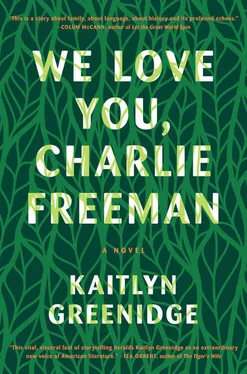





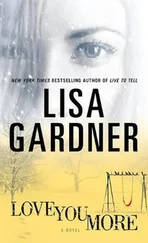
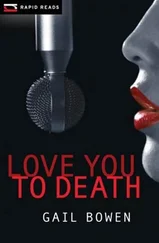
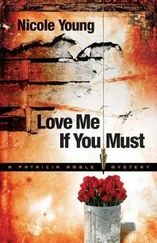

![Ally Carter - [Gallagher Girls 01] I'd Tell You I Love You But Then I'd Have to Kill You](/books/262179/ally-carter-gallagher-girls-01-i-d-tell-you-i-lo-thumb.webp)

